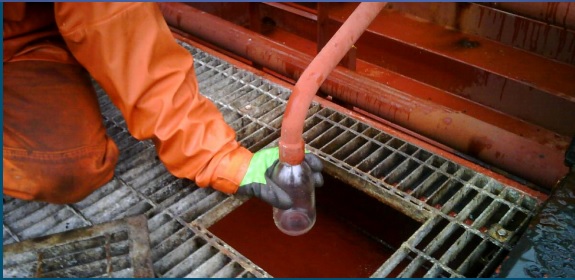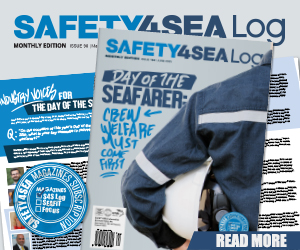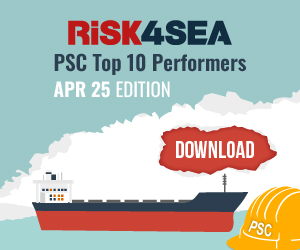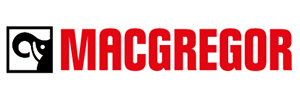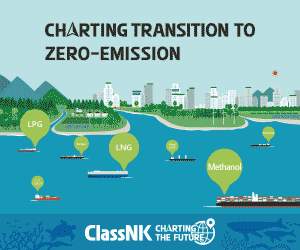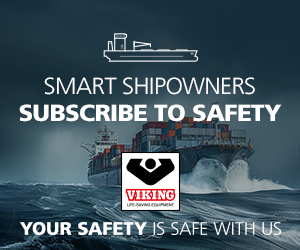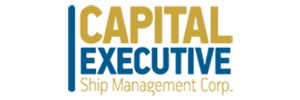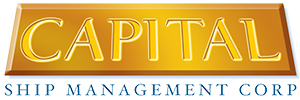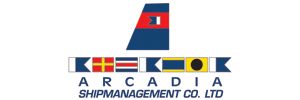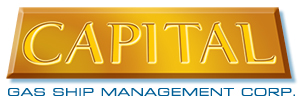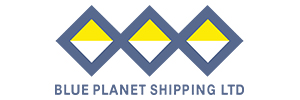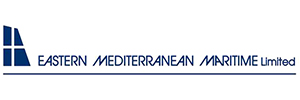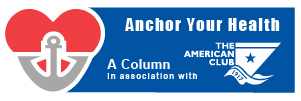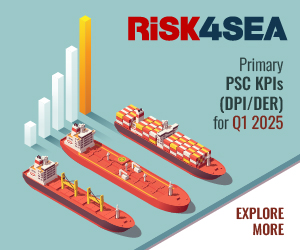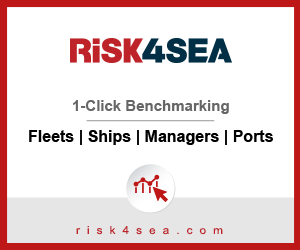West P&I Club has published a loss prevention bulletin addressing the issue of cargo contamination claims and highlights best practices on sampling procedures.
According to West, cargo contamination claims are a major risk for tanker operators, often resulting in expensive disputes. Properly taken, sealed, and stored samples are essential to prove cargo quality at the time of loading. As tanker cargoes are loaded through closed systems, pre-loading inspection is not possible. Samples are the shipowner’s main defence in off-spec claims as they provide critical evidence to identify when and where contamination occurred, reducing claim costs and response time.
Types of samples and when to take samples
Industry standard is that shore samples are taken unilaterally with no ship’s representative present. However, the vessel may request a shore sample which should be accompanied by a receipt and should be stored with the vessel’s other samples. Additionally, shore samples that are taken after discharge is completed should also be requested and stored with the vessel’s samples in the dedicated sample locker.
Sampling should be laid out in the charter party agreement and discussed in the pre-loading meeting with the cargo surveyor. The number, location and timing of samples should be discussed. Along with confirmation that the cargo surveyor will supply the vessel with a full set of samples and confirm the designated persons that will carry out the task of drawing, sealing and signing the samples.
Samples should always be taken with a member of ship’s crew present, representing the shipowner’s interests, and a cargo surveyor representing the charterer’s interests. Unilateral sampling should be avoided. However, if the cargo surveyor refuses to be present for ship sampling, ship’s crew must take independent samples.
These should be undertaken following the same guidance laid out in this bulletin, ensuring proper labelling, sealing and recording procedures as they can still be called for as evidence if there is a claim against the cargo. The cargo surveyor refusal to be present for ship’s sampling should be recorded in the Ship’s Logbook and the vessel should issue a Letter of Protest.
Sequence of sampling
- Shore tanks
- Shore lines
- Ship’s manifold sample
- 1st foot samples
- Ship’s tank running/composite sample
- Ship’s tanks prior to discharge
- Ship’s manifold at start of discharge
If the cargo is homogeneous then a running sample is preferred. If the cargo is prone to stratification or if adequate time has not been given for free water to settle after completion of loading, spot sampling is required to form a composite sample. Commonly lower, middle and upper samples are taken and then combined to form a composite sample as an accurate representation of the bulk cargo in a given tank.
When to take additional samples
- Manifold- if nominated shore tank has changed.
- Manifold- resuming cargo operations following a suspension.
- If there is a question of the cargo being off-spec.
If cargo is suspected to be off-spec, additional samples must be taken from various levels, dead bottom, lower, middle, upper as well as running samples from each affected tank. It is standard practice to suspend loading after receiving the first foot of cargo for sampling and analysis.
Even if the terminal does not require it, the vessel must take first foot samples when innages reach one foot to verify that ship lines and tanks are clean, particularly for high-spec or sensitive cargoes. Pump stack samples may also be taken on chemical tankers to confirm line cleanliness before cargo enters tanks. If samples pass, loading resumes; if not, ship’s management and a P&I representative should be contacted immediately.
Before discharge, samples must be taken from all tanks, especially for high-spec cargoes that require analysis approval before discharge. A pre-discharge manifold sample is crucial to demonstrate the cargo was on-spec when it left the vessel.
If cargo condition is contested, these samples are compared with post-loading samples to detect any onboard contamination. In contamination cases, the full sample chain, from shore tanks and lines to ship’s tanks and lines, is analysed to identify the contamination point. Drip samples, though often taken at the manifold as a form of running sample, are less reliable due to fluctuating loading rates.
Visual analysis
A visual analysis must be carried on all samples throughout the loading and discharge operations to ensure continued quality of the cargo.
Sampling methods
There are three main sampling methods. Namely, closed, open and restricted. To prevent the risk of spoiling the cargo it is imperative that the right method is used.
Closed sampling is the preferred method for most cargoes. There are two ways to carry out closed sampling. The first is using a dedicated sampling/ullage point. Portable equipment is used with a vapour lock system to ensure it remains a closed system. Secondly, a fixed inline system can be used. These are common on vessels which deal with high specification or sensitive cargoes.
Closed sampling must be used for any cargo which the following applies:
- Requires inerting or
- A nitrogen blanket
- Toxic or very toxic cargoes
- Corrosive cargoes
- UV sensitive cargoes
- Hygroscopic cargoes
- Oxygen sensitive cargoes
Open sampling is when the cargo hatch is opened and the sampler is lowered into the tank with the cargo in sight. If open sampling is being carried out the tank opening should only be uncovered long enough to complete the sampling. This kind of sampling can be acceptable for vegetable oils.
There is a risk of combustion if open sampling is carried out on a cargo that requires inerting. Carrying out open sampling on cargoes that require a nitrogen displaces the nitrogen blanket exposing the cargo to UV light and moisture which risks turning the cargo off-spec.
If open sampling is carried out on a cargo that is inerted or has a nitrogen blanket, the atmosphere in the tank may be displaced with the normal atmospheric conditions putting the crew drawing samples at risk of asphyxiation. If open sampling is used for corrosive cargoes, they may cause harm to the crew, damage the vessel or the environment. Toxic cargoes carry health risks to crew if open sampling is carried out.
Manifold sampling can be considered restricted sampling as there is a small quantity of cargo and vapour exposed to the atmosphere.
It is worth mentioning that not all portable sampling equipment that uses dedicated sampling/ullage points are considered closed samplers, some are restricted samplers. The correct type of sampling method should always be undertaken.
Depending on the cargo, incorrect sampling method could result in the cargo becoming off-spec, pose health risks to the crew drawing the samples, or cause damage to the vessel or the environment.
Safety concerns
The Safety Data Sheet (SDS) for the cargo must be supplied to the vessel prior to commencing loading. It should be supplied to the vessel as early as practicable so the crew can familiarise themselves with the safety aspects and health hazards of the cargo. Also to ensure the correct personal protective equipment (PPE) is in place for safe handling of the cargo.
The level of PPE required for taking samples depends on how hazardous, corrosive or toxic the cargo is.
Example for coveralls:
- non-hazardous and hazardous cargoes require flame proof coveralls
- corrosive and toxic cargoes require additional chemical splash suits
- very toxic cargoes require a gas tight chemical suit
Static accumulating cargoes should be sampling at least thirty minutes after completion of loading. This gives time for the static electricity to dissipate.
Sampling equipment must be earthed in accordance with manufacturers’ recommendations and instructions properly adhered to.
Personal gas meters must be worn by crew working on deck throughout cargo operations but in particular when sampling. Gas meters must be certified and calibrated to manufacturer’s standards.
Cargo sample bottles should not be filled more than 85% of their capacity, this is to allow for the safe expansion of the cargo.
Equipment
The size of the sample bottles should be 500 ml to 1000 ml. Always use the correct sample bottle required for the nominated cargo. The sample bottle material depends on the cargo being sampled. Generally speaking, for crude oils and fuel oils use metal or plastic sample bottles and product cargoes or chemical cargoes are suited to glass bottles.
Labelling, sealing and recording
All samples drawn must be labelled, sealed, recorded and retained onboard in the designated sample locker. Labels should be written directly onto the samples or on sample labels immediately after the samples have been drawn. Furthermore, samples must be sealed with individual seal numbers. At least one full set of sealed samples must be retained on board the vessel. These act as the owner’s evidence of the condition of cargo carried onboard if there is a claim raised against the cargo.
Storing
Samples must be stored in a dedicated, ventilated, UV-protected locker outside accommodation, with fire safety measures and proper separation. Retention is typically 18–30 months depending on the applicable cargo rules; always verify the charterparty and retain samples longer if disputes exist.
Releasing samples
Proper chain of custody is paramount when releasing samples to third parties. A detailed receipt should be issued for each sample that is being released including seal numbers.
Disposing of samples
Samples should not be disposed of without first confirming with the shipowner and P&I Club that there are no outstanding claims against that cargo. If there is a dispute against the cargo, samples should be kept onboard until resolved. Samples must be disposed of to an approved shore reception facility. A receipt should be issued by the reception facility and retained onboard for record purposes.

































